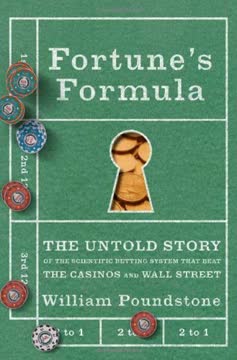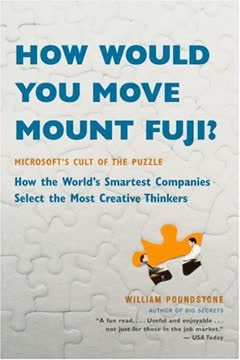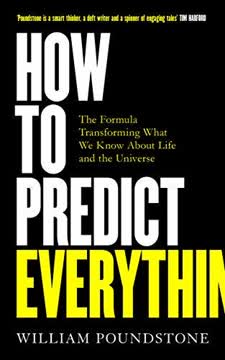Key Takeaways
1. Ignorance Distorts Our Mental Maps and Decisions
The poorly informed don’t necessarily know less. They just know different things.
Distorted perceptions. Ignorance, particularly of geography, large numbers, and demographics, leads to distorted mental maps of the world. This, in turn, affects choices, behaviors, and opinions in both personal and public realms. For example, a lack of geographic knowledge can lead to support for military interventions in areas people can't even locate on a map.
Examples of distorted knowledge:
- Confusing Africa as a single, homogeneous locale
- Inability to locate countries in the news, such as Ukraine or Afghanistan
- Misunderstanding the size of the national debt or deficit
- Overestimating the size of minority groups
Consequences of ignorance. These misperceptions can have significant consequences, influencing political opinions, support for policies like border fences, and even personal decisions related to health and safety.
2. Knowledge Correlates with Financial Success
The ability to answer so-called trivia questions correlates with higher income and other indexes of a successful life.
The Knowledge Premium. Factual knowledge, even seemingly trivial information, correlates with higher income and other indicators of success. This "knowledge premium" persists even when factoring out formal education and age.
Examples of knowledge predicting income:
- Knowing the capital of Brazil
- Understanding basic science concepts
- Being able to name elected officials
- Knowing sports trivia
Possible explanations. This correlation may be due to several factors, including better decision-making skills, improved communication abilities, and a greater likelihood of marrying well-educated and financially secure spouses.
3. The Dunning-Kruger Effect Thrives in a Fact-Resistant Culture
The Dunning-Kruger effect requires a minimal degree of knowledge and experience in the area about which you are ignorant (and ignorant of your ignorance).
Ignorance of Ignorance. The Dunning-Kruger effect describes the phenomenon where those with the least knowledge and skills are least able to appreciate their lack. This can lead to inflated self-assessments and overconfidence.
Examples of the Dunning-Kruger Effect:
- Bad drivers thinking they're good drivers
- Gun owners with limited firearm safety knowledge overestimating their knowledge
- People with poor grammar skills being confident in their ability to judge grammar
Contemporary America. This effect is exacerbated in contemporary America, where a culture that doesn't care about facts can lead to a lack of awareness of one's own ignorance.
4. Media Consumption Shapes Knowledge and Misinformation
The great risk isn’t that the Internet is making us less informed or even misinformed. It’s that it may be making us meta-ignorant—less cognizant of what we don’t know.
Media's Influence. The media landscape plays a significant role in shaping what we know and what we think we know. Selective reporting, sensationalism, and the spread of misinformation can all contribute to distorted perceptions of reality.
Examples of media-driven misinformation:
- The belief that crime rates are rising when they are actually declining
- Overestimating the size of minority groups
- Misunderstanding the causes of climate change
- Believing in conspiracy theories
The importance of critical thinking. It is crucial to be aware of the potential for media to misinform and to develop critical thinking skills to evaluate information and distinguish fact from fiction.
5. Rational Ignorance and the Value of Knowing
The conventional reaction to such reports is a blend of shock and amusement. It’s terrible how little young people/ordinary citizens know—right? It’s worth asking how we know it’s so terrible and whether it’s terrible at all.
Rational Ignorance. Economist Anthony Downs argued that ignorance can be rational when the effort needed to acquire knowledge outweighs the advantage of having it. However, this can lead to a society where people are unaware of their own ignorance and make poor decisions as a result.
The Value of Knowing. Despite the ease of accessing information online, there is still value in having a foundation of factual knowledge. This knowledge provides context, improves communication, and enables better decision-making.
The poorly informed. The poorly informed don't necessarily know less, they just know different things. A gamer who spends all his free time playing video games will have an encyclopedic understanding of those games. He is ill informed only by arbitrary standards of what’s important.
6. The Google Effect: Outsourcing Memory and Its Consequences
So facts are more often forgotten when people believe the facts will be archived. This phenomenon has earned a name—the Google effect—describing the automatic forgetting of information that can be found online.
The Google Effect. The "Google effect" describes the tendency to forget information that can be easily found online. This is because our brains prioritize remembering where to find information rather than the information itself.
Consequences of the Google Effect:
- Decreased retention of facts
- Increased reliance on source memory
- Potential for amnesia-like effects from constant access to information
Distributed Memory. The cloud is a friend who happens to know everything. It’s always available, provides the answer in seconds, and never gets upset with dumb questions. It’s little wonder we depend on it to the point of absurdity.
7. The Illusion of Knowledge and the Erosion of Expertise
Copying answers from Google or Wikipedia made people feel “I am smart” (one of the agree-or-disagree statements).
The Illusion of Knowledge. The ease of accessing information online can create an illusion of knowledge, leading people to overestimate their own abilities and expertise. This can have negative consequences in areas such as plagiarism and decision-making.
Erosion of Expertise. The Internet may also be eroding the value of expertise, as people increasingly rely on online sources rather than consulting with experts. This can lead to a decline in the quality of information and advice.
The cloud is easy to access now. The cloud is easy to access now, and the process can only get more seamless in the near future. A bit in the movie Annie Hall (1977) already seems dated—or is it prophetic?
8. The Importance of Cultural Literacy in a Complex World
It’s easy to buy Hirsch’s basic argument; less clear is how far to take it.
Cultural Literacy. E.D. Hirsch Jr. argued that a shared body of knowledge is essential for effective communication and cultural understanding. This "cultural literacy" includes knowledge of history, literature, art, and other aspects of culture.
The erosion of cultural literacy. There is evidence that cultural literacy is declining, particularly among younger generations. This can lead to difficulties in understanding historical references, appreciating art and literature, and participating in informed discussions.
The value of cultural literacy. Cultural literacy is not just about knowing facts; it is also about developing critical thinking skills, appreciating different perspectives, and engaging with the world in a meaningful way.
9. Strategies for Navigating a Culturally Illiterate World
The great challenge of a free society is making good choices when practically everyone is misinformed.
The challenge of misinformation. In a world where misinformation is rampant, it is crucial to develop strategies for navigating the information landscape and making informed decisions. This includes:
- Developing critical thinking skills
- Seeking out diverse sources of information
- Being aware of one's own biases
- Engaging in respectful dialogue with others
The importance of education. Education plays a vital role in equipping individuals with the knowledge and skills they need to navigate a complex and rapidly changing world. This includes not only factual knowledge but also critical thinking, problem-solving, and communication skills.
The need for informed citizens. Democracies depend on the wisdom of crowds, but crowds are less wise when too many share the same distorted mental maps. In order to make reasoned decisions on most policy issues, it is imperative that voters know some demographic statistics and understand the difference between a million, a billion, and a trillion.
Last updated:
FAQ
What is Head in the Cloud: Why Knowing Things Still Matters When Facts Are So Easy to Look Up by William Poundstone about?
- Exploration of knowledge in the digital age: The book investigates why knowing facts still matters, even when information is easily accessible online, and examines the paradox of widespread ignorance despite the availability of facts.
- Three-part thematic structure: Poundstone organizes the book around the Dunning-Kruger effect, the knowledge premium (how knowledge correlates with success), and strategies for navigating a culturally illiterate world.
- Use of original surveys: The author uses extensive surveys to map public knowledge, revealing gaps and their consequences for individuals and society.
- Cultural literacy and misinformation: The book also addresses how misinformation spreads and the importance of understanding context and critical thinking in the digital era.
Why should I read Head in the Cloud by William Poundstone?
- Challenges the “Google it” mindset: Poundstone demonstrates that knowledge enriches lives and is linked to practical benefits like financial literacy, health, and informed decision-making.
- Insight into cognitive biases: The book explains the Dunning-Kruger effect and other biases, helping readers recognize and overcome their own blind spots.
- Strategies for information overload: Readers gain practical advice on curating knowledge and managing digital media consumption to stay well-informed.
- Relevance to modern life: The book is essential for anyone interested in how digital tools shape our thinking, memory, and participation in society.
What are the key takeaways from Head in the Cloud by William Poundstone?
- Knowing facts still matters: Internalized knowledge provides a mental map for critical thinking and helps avoid the trap of not knowing what you don’t know.
- Knowledge correlates with success: General factual knowledge predicts higher income, better decision-making, and more nuanced opinions.
- Cultural literacy is essential: Understanding shared references enables informed conversations and citizenship, while faked or superficial literacy is increasingly common.
- Critical thinking and skepticism: The book emphasizes the need for skepticism, context, and research skills to navigate misinformation and information overload.
What is the Dunning-Kruger effect as explained in Head in the Cloud by William Poundstone?
- Definition and origin: The Dunning-Kruger effect is a cognitive bias where people with low ability or knowledge in a domain overestimate their competence, while experts may underestimate theirs.
- Real-world examples: Poundstone cites studies showing that unskilled individuals are often unaware of their ignorance, leading to inflated self-assessments and poor decisions.
- Broader implications: This effect explains why people hold distorted mental maps of reality, affecting decisions in politics, education, and daily life.
- Learning and self-awareness: Gaining competence not only improves skills but also enhances self-awareness, helping people recognize their limitations and seek further knowledge.
How does William Poundstone define and discuss the “Google effect” in Head in the Cloud?
- Definition of the Google effect: The Google effect is the tendency to forget information that can be easily found online, as the brain prioritizes remembering where to find facts rather than the facts themselves.
- Experimental evidence: Studies show people remember trivia facts less well when they believe the information is stored and accessible on a computer.
- Implications for memory: This shift in memory strategy reflects adaptation to distributed memory but may reduce deep knowledge retention and critical thinking.
- Risks of meta-ignorance: Relying solely on digital lookups can lead to being unaware of one’s own ignorance, making it harder to identify knowledge gaps.
How does factual knowledge correlate with income and success according to Head in the Cloud by William Poundstone?
- Strong positive correlation: Surveys show that people who answer more general-knowledge questions correctly tend to have higher household incomes, even when controlling for education and age.
- Beyond formal education: Knowledge predicts income beyond formal education, suggesting that broad factual knowledge confers advantages in communication, problem-solving, and social perception.
- Specific knowledge areas: Financial literacy and even sports trivia correlate strongly with income, indicating practical and culturally pervasive knowledge can impact earnings.
- Complex causality: The relationship may be bidirectional or influenced by factors like family background, memory, curiosity, and ambition.
What does Head in the Cloud by William Poundstone reveal about public knowledge and cultural literacy?
- Widespread ignorance: Surveys reveal that many adults and even college students lack basic knowledge in geography, history, science, and literature.
- Generational and international gaps: Millennials, despite being highly educated, often score lower on general knowledge tests compared to international peers.
- Consequences for society: Distorted mental maps influence political opinions and policy preferences, potentially undermining democratic decision-making.
- Fragmented and superficial literacy: Public knowledge often consists of disconnected facts or oversimplified narratives, with many people faking cultural literacy through spoilers or secondhand information.
How does Head in the Cloud by William Poundstone address misinformation and fake news?
- Spread of fake news: The book highlights how spoof and fake news sites spread false stories that are widely shared and mistaken for truth, especially on social media.
- Dunning-Kruger in media literacy: People least able to detect fake news often believe they are good judges of truth, fueling the viral spread of misinformation.
- Need for skepticism: Poundstone stresses the importance of critical thinking, contextual knowledge, and research skills to discern truth in the digital age.
- Role of context: Understanding the context and source of information is essential for resisting misinformation and making informed decisions.
What does Head in the Cloud by William Poundstone say about Americans’ knowledge of science and religion?
- Mixed scientific understanding: While many Americans know basic scientific facts, large minorities fail on fundamental questions about evolution, the big bang, and atomic structure.
- Religious ignorance despite faith: Many Americans are deeply religious but lack detailed knowledge about their own or other religions, partly due to limited religious education in schools.
- No link to happiness: The book finds no correlation between religious knowledge and self-reported happiness, income, or relationship status.
- Value of scientific and religious literacy: Both are essential for cultural literacy and understanding political and global conflicts, though the book questions how much knowledge is truly necessary.
How does Head in the Cloud by William Poundstone describe the state of political knowledge and its impact on democracy?
- Low political knowledge: Many voters cannot name their elected officials beyond the president and vice president, and have poor understanding of government functions and civics.
- Impact on elections: Low-information voters are more likely to be swayed by name recognition, character appeals, or partisan messaging rather than policy knowledge.
- Risks for democracy: Increasing voter turnout without improving political knowledge risks turning elections into lotteries, where choices are made randomly or based on superficial factors.
- Need for informed engagement: The book suggests that improving political knowledge is crucial for healthy democratic decision-making.
What practical strategies does William Poundstone recommend in Head in the Cloud for managing information overload and maintaining cultural literacy?
- Balanced news diet: Consume a mix of news sources that are not overly customized, such as NPR, newspapers, and curated TV shows, to get a broad and reasoned perspective.
- Limit junk browsing: Set specific times for recreational browsing and avoid news aggregators or social media as default homepages to reduce distractions.
- Avoid echo chambers: Supplement preferred news sources with diverse viewpoints to avoid living in an information bubble.
- Retain foundational knowledge: Build a critical mass of facts to enable effective use of digital resources and critical evaluation of information.
What is the fox and hedgehog metaphor in Head in the Cloud by William Poundstone, and how does it relate to knowledge and decision-making?
- Fox vs. hedgehog explained: The fox knows many things and embraces complexity, while the hedgehog knows one big thing and applies it rigidly; Poundstone favors the fox’s broad, contextual knowledge.
- Nuanced opinions: People with broader general knowledge tend to have more nuanced opinions and are less likely to hold knee-jerk reactions on controversial issues.
- Importance of humility: Broad knowledge fosters humility by revealing how much one does not know, which is essential for wise citizenship and decision-making.
- Shared reference points: Contextual knowledge provides shared cultural references, enabling more informed and reasoned public discourse.
Review Summary
Head in the Cloud receives mixed reviews, with some praising its thought-provoking ideas on the importance of general knowledge in the digital age. Critics appreciate Poundstone's exploration of the Dunning-Kruger effect and the correlation between knowledge and success. However, many find the book repetitive, US-centric, and condescending in tone. Some reviewers argue that Poundstone oversimplifies complex issues and fails to provide a nuanced analysis of knowledge acquisition. Despite these criticisms, readers generally agree that the book raises important questions about the value of knowledge in an era of easy information access.
Similar Books
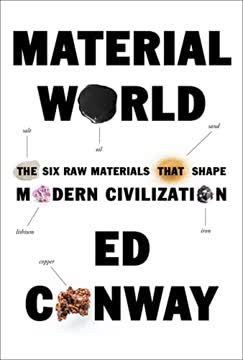


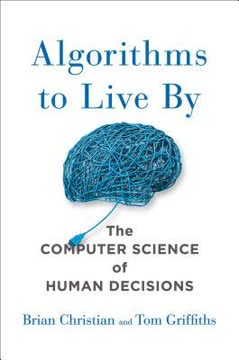






Download PDF
Download EPUB
.epub digital book format is ideal for reading ebooks on phones, tablets, and e-readers.

